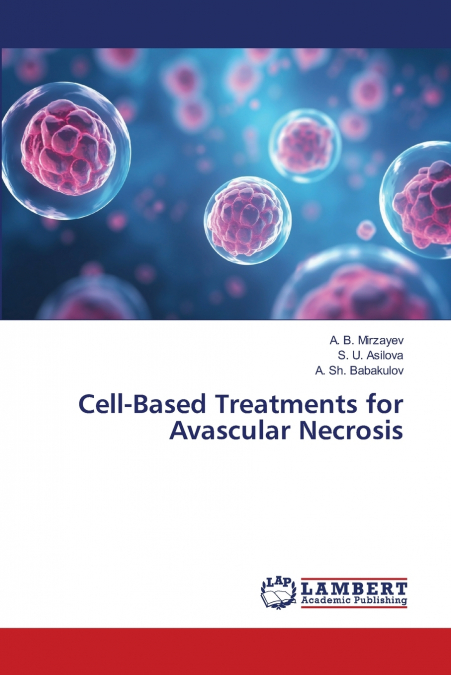
A. B. Mirzayev / A. Sh. Babakulov / S. U. Asilova
Avascular necrosis (AVN), also referred to as osteonecrosis, is a degenerative bone disorder resulting from impaired blood flow to bone tissue, ultimately causing structural collapse, chronic pain, and functional loss. In the wake of the COVID-19 pandemic, AVN has emerged as a particularly concerning sequela, especially among younger patients exposed to high-dose corticosteroid therapy or post-viral vascular complications. The conventional endpoint for many AVN patients-total hip replacement-is often inappropriate or undesired in young adults. Hence, this monograph explores a critical area of regenerative orthopedic medicine: cell-based, joint-preserving therapies for AVN.The text centers around minimally invasive biologic interventions, such as core decompression (CD) in combination with cell-based therapies like bone marrow aspirate concentrate (BMAC), stromal vascular fraction (SVF) from adipose tissue, and platelet-rich plasma (PRP). These strategies aim to harness the regenerative potential of mesenchymal stem cells (MSCs) and biologically active growth factors to promote vascularization, stimulate osteogenesis, and delay or prevent the need for joint arthroplasty.